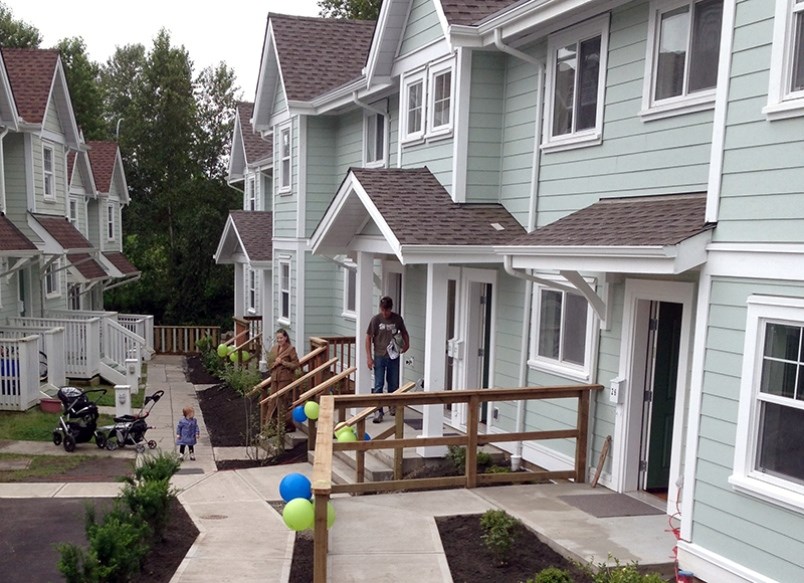Coquitlam has tightened the rules but not the flow of money for new affordable housing projects in the city.
Tuesday, council changed the criteria for the Affordable Housing Reserve Fund to make it easier to develop housing for low to moderate income households in the city, according to Andrew Merrill, manager of community planning.
Now groups wishing to build non-profit housing will know in advance what’s needed to snag some of the $11 million in the city’s affordable housing reserve fund.
For example, the city now has three levels of potential funding and the criteria that must be met to apply. The first tier is a grant of up to $10,000 to $20,000 per unit, enough to cover development cost charges and permit fees, the second tier is a $20,000 to $50,000 conditional grant, with requirements to pay the money back if the project doesn’t proceed, and the third tier is $50,000 with the provision of security, such as ownership of land, air space or a long term lease.
“These are examples and the city has done all three of these, these are tried and true models that work,” Merrill said.
By laying out the expectations and what’s available, groups can now build a financial plan and go to other financial partners, Merrill said.
The city also wants it known that developers can’t apply for funds to build non-profit housing but can partner with a non-profit agency, which would then qualify.
“We can not directly subsidize their for-profit business,” Merrill said, “they may be partners and that’s fine.”
Funds in the reserve come from money developers pay to obtain approvals for higher density. For example, a new condo tower at current values pays between $8 million to $10 million in a density bonus for a 40-storey tower, and about 10% or $800,000 to $1 million goes into the fund, with the rest of the money used to pay for amenities.
Merrill said four projects have been approved to receive money — about $2 million in total — from the city’s reserve fund to build non-market housing since the fund was started in 2015 as part of the city's housing affordability strategy.
The approved projects are: a 75-unit rental apartment at 1110 King Albert Street, the Talitha Koum transition house, 14 units of seniors housing through the Finish Canadian Resthome Association and 12 units for people with disabilities in the Beedie Living project at the former Safeway site on Austin Avenue through the Vancouver Resource Society.
However, there is still $9 million in the pot, and 10 proponents of non-market rental projects have made applications.
The new guidelines should provide clarity, Merrill said, especially since the housing market has changed and provincial and federal governments are now more involved in supporting non-profit housing.
Merrill said the city didn’t want to be in a place where it was putting up more money than BC Housing or CMHC.
“The province has the primary role. We’re not using our local community’s funds to let the province off the hook,” he said.
Among the projects that could receive funding under this new criteria is the Hoy Creek Housing Co-Op redevelopment project, and Habitat for Humanity, which intends to build between 40 and 50 units at 1358 Coast Meridian Road.



